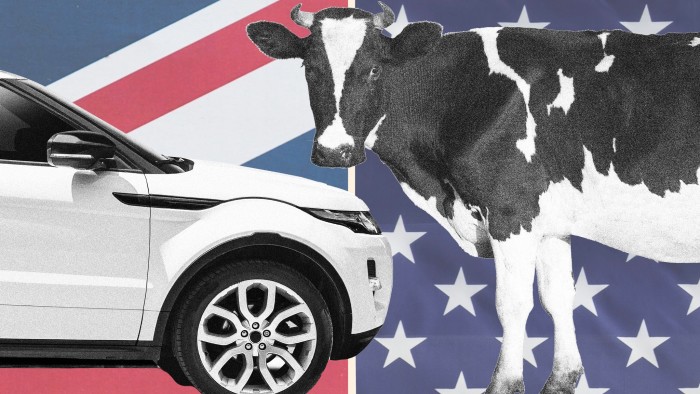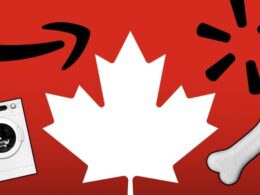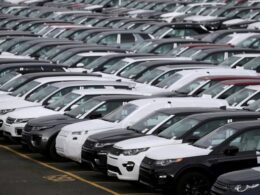The leaders of the US and the UK hailed the trade pact signed between the two sides on Thursday as “historic”, but experts warned it still leaves the UK facing higher tariffs on exports to the US than before Donald Trump took office.
While the 10 per cent worldwide tariff imposed by Trump in April remains in place, the UK won significant concessions on steel and auto tariffs that Trump had increased by an extra 25 per cent in February and March.
In return, the UK granted the US greater access for beef, ethanol and industrial products, raising concerns that the UK market risked getting swamped with US products.
UK negotiators avoided straying into politically contentious areas, such as reducing the UK’s digital services tax, opening healthcare markets to American companies or making changes to UK food standards rules to allow products such as chlorine-washed chicken and hormone-treated beef.
Mattia Di Ubaldo, principal research fellow in international trade at the University of Sussex, said the deal left the UK in “a significantly worse position” in its bilateral trade terms with the US than a year ago — but now with a competitive advantage against some other countries.
Economy
Economists said the deal would bring relief to the industries at greatest risk from tariffs, but would make no difference to the overall economic outlook in either the US or the UK. They suggested the US would also struggle to strike meaningful deals with other countries.
The limited relief from auto and steel and aluminium tariffs would “nibble away” at the US effective tariff rate, but the average tariff was still set to remain in double digits, hitting American consumers hard, said Michael Pearce at the consultancy Oxford Economics.
“We do not expect this to lead to a noticeable impact on overall UK GDP,” said Peder Beck-Friis, an economist at Pimco. “The ongoing fiscal tightening and [Bank of England] policy remain much more important drivers of the outlook.”
Paul Dales, UK economist at Capital Economics, said the effective US import tariff rate on the UK would stand at about 11 per cent as a result of the arrangement, far higher than the 1 per cent that existed last year. That was an improvement on the 13 per cent that preceded Thursday’s agreement, but much depended on future US measures on critical sectors such as pharmaceuticals.
Autos
Britain’s car executives broadly welcomed the deal, which whittled a potential tariff of 27.5 per cent down to 10 per cent for the first 100,000 cars shipped from the UK.
The new quota accounts for almost all of the 101,870 vehicles exported to the US last year, according to the Society of Motor Manufacturers and Traders.
“The application of these tariffs was a severe and immediate threat to UK automotive exporters so this deal will provide much needed relief,” said SMMT chief executive Mike Hawes.
Adrian Mardell, chief executive of Jaguar Land Rover, the largest UK exporter of cars to the US, described the deal as “significant progress” in offering “the certainty that we need to continue to invest going forward”.
But he cautioned that “this is not job done for the UK”, in the hope that future negotiations would, in time, reduce tariffs even further.
“It’s not without its challenges but it is manageable,” another executive said.
Although Britain’s car industry is heavily reliant on European exports, cars are the biggest single UK export item to the US, accounting for sales worth £6.4bn. It is also the largest market for high-end brands such as JLR’s Range Rover as well as Bentley and McLaren, which do not have any manufacturing footprint in the US.
Aerospace
The UK also secured a deal that will allow Rolls-Royce to export its engines to the US “tariff-free”, although executives said they were still hopeful that all aerospace parts would be exempt.
Shares in Rolls-Royce were up 3.6 per cent after the news. Meanwhile, shares in US plane maker Boeing rose 2.8 per cent on Thursday after US commerce secretary Howard Lutnick said a UK airline was set to purchase $10bn worth of the company’s planes. British Airway’s owner IAG was on Thursday night closing in on a deal to buy Boeing 787 aircraft, people familiar with the deal confirmed.
The aerospace industry, a big user of steel and aluminium, has been rushing to adjust to Trump’s trade war, with higher costs already filtering down through its integrated supply chains.
Kevin Craven, chief executive of ADS, the aerospace and defence trade body, said that while the base US 10 per cent tariff would “stay in place, the elimination of the additional tariffs on steel and aluminium is a significant achievement”.
“The reported elimination of tariffs on engines and aerospace parts is also very welcome news, although we await further specific detail,” he added.
Agriculture and food
Farmers welcomed the UK government’s commitment to maintaining British food standards and securing reciprocal access for beef trade, but warned that a flood of ethanol into the UK could hit farmers.
The White House said the agreement would “significantly expand” US market access in the UK, citing a $700mn opportunity for ethanol exports and a $250mn opportunity for other agricultural products such as beef.
“Our biggest concern is that two agricultural sectors have been singled out to shoulder the heavy burden of the removal of tariffs for other industries in the economy,” said Tom Bradshaw, president of the UK’s National Farmers Union.
The NFU said biofuels were “extremely important” for the UK’s arable crop sector. “Fully liberalising our ethanol market could translate into the loss of this profitable outlet for our arable growers,” it said. Bioethanol in the UK is produced primarily from domestic wheat and imported corn.
Downing Street said the UK and US had agreed “reciprocal” market access on beef, with UK farmers receiving a tariff-free quota of 13,000 metric tonnes.
The White House said the UK “unfairly” maintained tariffs of up to and over 125 per cent on “meat, poultry, and dairy products on top of maintaining non-science-based standards that adversely affect US exports”.
Before Trump imposed his blanket 10 per cent tariff, the US applied an average agricultural tariff of 5 per cent on UK imports, while the UK’s average tariff was 9.2 per cent.
The Food and Drink Federation, the industry lobby for food manufacturers, said the 10 per cent tariff would still affect UK food exporters, many of whom are smaller businesses. The industry sent £2.7bn worth of goods to the US in 2024.
Steel
Weeks after the UK government stepped in to save Britain’s last remaining steel blast furnaces, the industry welcomed the deal to scrap tariffs for US exports as “hugely significant”.
In February, weeks after coming into office, Trump had ripped up an agreement between the UK and US struck under former president Joe Biden and slapped tariffs of 25 per cent on all British steel and aluminium imports to the US.
UK Steel, the trade body, stressed that some clarification of the terms of the deal was still needed, particularly whether there would be any strings attached for steel to qualify for the zero per cent tax, and when the change in the rules would come into effect.
The US is the second-largest market for steel exports from the UK, after Europe. In 2024, the UK exported 180,000 tonnes of semi-finished and finished steel to the US, worth £370mn. This accounts for 7 per cent of the UK’s total steel exports by volume and 9 per cent by value.
Pharma
The US has agreed to give the UK preferential treatment on any tariffs imposed as part of Washington’s ongoing investigations into whether imports of pharmaceuticals and semiconductors threaten national security, the UK has claimed.
Starmer hailed the concession as a step that would protect the UK “whatever happens in the future” — a reference to the fact that Trump is still considering whether to impose tariffs on pharmaceuticals.
The deal also laid the groundwork for a future UK-US technology partnership in which the UK could collaborate in sectors such as biotech, life sciences, quantum computing, nuclear fusion, aerospace and space, London added.
The promises have raised hopes in the pharmaceuticals industry that the worst impacts of future Trump tariffs will now be averted, although the sector remains cautious without further details.
“It’s good progress but we just need to understand a bit more about it,” said one industry figure. “All of this adds up to a lack of clarity,” said another, pointing nonetheless to the “positive framing”.
Reporting by Peter Foster, Kana Inagaki, Sylvia Pfeifer, Madeleine Speed, Michael Peel, Gillian Plimmer, Sam Fleming, Delphine Strauss and Philip Georgiadis in London and Andy Bounds in Brussels
Source link









